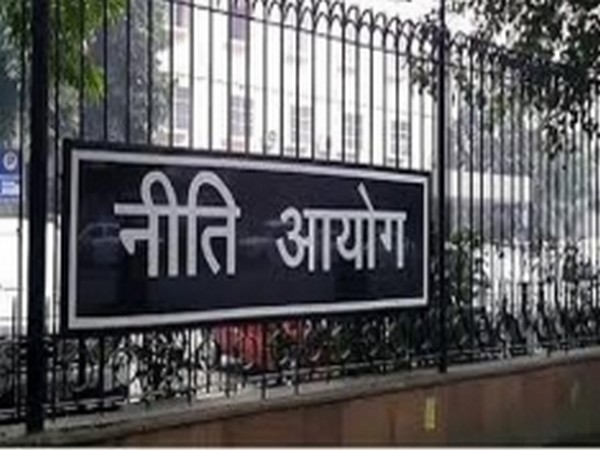New Delhi [India]: A mature Public Private Partnership (PPP) framework is one of the most useful tools with the Government to facilitate private investment into infrastructure, claimed Aman Hans, Public Private Partnership Specialist at the NITI Aayog.
To bridge the growing infrastructure deficit in the country considerable efforts have been made towards increasing the investment in physical infrastructure, especially since 2004 when several measures were undertaken to promote private investment in infrastructure both directly and through PPPs.
PPPs are long term contracts between the Government (sponsoring authority) and a private company that may typically provide for financing, construction, operation, and maintenance under a single firm or a consortium.
“It is generally advised to adopt a suitable PPP framework in case of large and complex projects that can justify the associated transaction and monitoring costs and thus provide value for money considering the project’s life-cycle cost to the Government,” he said.
During 2007-12, the private sector contributed 36.6 percent in the overall infrastructure investment, leading to infrastructure investment rising from 5 percent of GDP during 2002-07 to seven percent of GDP during 2007-12. But this momentum could not be sustained and it is estimated to have slowed down to 5.6 percent of GDP during 2013-17.
This decline in infrastructure investment, Aman said, could be attributed to the slowdown in overall private sector investment, though it has partially been offset by the fiscal stimulus measures into infrastructure in recent years. In the next five years (2017-22), in order to maintain a similar level of infrastructure investment, it is estimated that spending on infrastructure needs to increase to Rs. 50 lakh crore.
This would require the Government to take proactive and expeditious measures to leverage on the private sector finances and to judicially exploit private sector capacity to build and manage infrastructure facilities, in a sustainable manner, said Hans.
Success of PPP to a large extent depends on optimal risk allocation among stakeholders, environment of trust among stakeholders, robust institutional capacity to undertake grooming and implementation of PPP projects. Further, to foster successful implementation of a PPP project, a robust PPP enabling ecosystem including liquid and diversified financial institutions; sound regulatory and arbitration framework; mature developers and experienced consultants etc. is also essential.
Building on the learnings from the past experience, the Government has in the last three years, undertaken some noteworthy steps to strengthen the PPP framework and the enabling ecosystem in India. This includes formulation of guidelines for new innovative PPP models, with due consideration to the extant risk outlook and investor appetite, like monetization of publically funded highway projects worth Rs. 35,600 crore under Toll-Operate-Transfer Model (ToT) and construction and expansion of over 60 highway projects under Hybrid-Annuity-Model (HAM).
With implementation of PPP models like HAM and TOT, Aman said the Government has optimally taken over the project implementation risk and thereby revived the interest of private players and financial institutions in PPP projects in the road sector to a considerable extent.
Further, Aman revealed that the government liberalised exit policies for concessionaires to free-up equity for re-investment into new projects; approved the policy of railway station development through PPP and is currently in the process of formulating suitable PPP policy for newer sectors and asset classes.
Some of the other measures include: setting up of National Infrastructure Investment Fund (NIIF) to channelise foreign institutional funds into infrastructure; introduction of PPP component in new metro policy; amendment in the Arbitration and Conciliation Act, 1996 to make dispute resolution more cost effective and time-bound; Rs.2.11 lakh crore plan to recapitalise public-sector banks aimed at reviving bank-lending; and introduction of ease of doing business (EODB) state-level ranking, to help the Government to push through reforms in sectors that are primarily State subject.
As a result of these measures and more, Hans said the implementation of languishing and newer projects has been considerably put back on track. In a recent study by the rating agency ICRA, it has been highlighted that infrastructure companies, especially the ones with exposure to the airport and the highways sectors, have started witnessing an improvement in their operational and financial performance.
Further, India has also managed to perform significantly well with its EODB World Bank ranking rising to 100 (out of 190 nations) from 130 a year earlier, and with India’s sovereign Moody’s credit rating getting upgraded to Baa2 with ‘Stable Outlook’ from Baa3 Positive.
Hans opined that while a lot has been done, a lot more still needs to be done. Going forward, the Government needs to undertake more concerted efforts to revive the credibility of PPP framework and build capacity within various public institutions for PPP implementation. These may include implementation of some of the key recommendations of the Kelkar Committee Report including setting-up of national level PPP institution, a dedicated PPP tribunal, and a formal framework for post award contract renegotiation.
Undertaking these measures, Aman said, shall send strong signal to the market about the commitment level of the nation to overall PPP framework. Further, it is imperative for the Government to push PPP pilot projects in newer sectors, along with formulation of newer or revision of existing Model Concession Agreements (MCAs), to ensure replicability.
“A mature PPP framework, along with a robust enabling ecosystem shall enable the Government to accomplish, to a considerable extent, what our Prime Minister, Narendra Modi has said “The Government has no business to do business” and thereby promote private sector investments and participation towards the nation building,” concluded Aman Hans. (ANI)

